This article focuses on what we are paying attention to in the next 48 to 72 hours. The article also includes weather maps for longer-term U.S. outlooks (up to four weeks) and a six-day World weather outlook which can be very useful for travelers.
First the NWS Short Range Forecast. The afternoon NWS text update can be found here after about 4 p.m. New York time but it is unlikely to have changed very much from the morning update. The images in this article automatically update.
Short Range Forecast Discussion
NWS Weather Prediction Center College Park MD
Mon Dec 23 2024
Valid 12Z Mon Dec 23 2024 – 12Z Wed Dec 25 2024…Heavy rain and mountain snow returns to the West Coast region Monday
night……Showers and thunderstorms developing over portions of the south-central
states……Relatively mild conditions across the majority of the country leading
up to Christmas…An active weather pattern is expected to continue across the West Coast
region as an energetic storm track across the eastern Pacific brings in
multiple rounds of precipitation. After a brief respite Monday, the next
atmospheric river event arrives across northern California and western
Oregon late Monday night and into Tuesday. Although the storm system will
be progressive overall, there will be a deep surge of moisture ahead of
the cold front that will intersect the coastal terrain and the western
slopes of the northern Sierra Nevada. Rainfall totals on the order of 2-4
inches, and locally higher, are likely across this region through Tuesday
evening. Snow levels will be initially high, but should fall some once
the front passes. The heaviest snow from this event should affect the
highest terrain of the central and northern Sierra Nevada, with up to a
foot of accumulation possible.A low pressure system crossing the Great Lakes region on Monday will
produce a corridor of mixed wintry precipitation from southern Minnesota
to southern Lower Michigan, and mainly light to moderate snow to the north
across northern Wisconsin and into northern Michigan. Winter weather
advisories are currently in effect for those areas. This low reaches the
Northeast U.S. Christmas Eve, with light snow mainly for interior
portions. Farther to the south across Texas, a separate surface low
develops, and increasing southerly flow from the western Gulf of Mexico
ahead of that system will fuel the development of scattered to numerous
showers and some thunderstorms from eastern Texas northward across much of
Arkansas and into southern Missouri through Tuesday.Much of the East Coast region will have a very cold start to the holiday
week on Monday, with an arctic surface high slowly moving east across the
region. The coldest morning of the season thus far is expected for most
of the Mid-Atlantic and Northeast states, followed by another chilly day
on Monday, albeit slightly milder compared to what was observed on Sunday.
A further moderation trend is expected going into Christmas Eve as the
surface high moves offshore and milder air from the Ohio Valley advects
eastward across the region. The remainder of the country should enjoy
generally above average temperatures by late December standards,
particularly across the central and southern Plains where daytime highs
could be 15-20 degrees above average. This would equate to highs well
into the 60s and 70s for much of Texas.
To get your local forecast plus active alerts and warnings click HERE and enter your city, state or zip code.
Learn about wave patterns HERE.
Then, looking at the world and of course, the U.S. shows here also. Today we are looking at precipitation.
Please click on “Read More” below to access the full Daily Report issued today.
| Notices: What would you like to learn about? Please provide that to me via the comment section at the end of the article. |
Now more detail on the 48-Hour Forecast (It is a 48 to 72 Hour Forecast actually)
Daily weather maps. The Day 1 map updates twice a day and the Day 2 and 3 maps update only once a day. These maps update automatically. But if that does not happen, you can get updates by clicking HERE
TODAY (or late in the day the evening/overnight map will appear) (Key to surface fronts shown on maps and you will then also be able to insert a city name or zip code and get a local NWS forecast).

TOMORROW

NEXT DAY
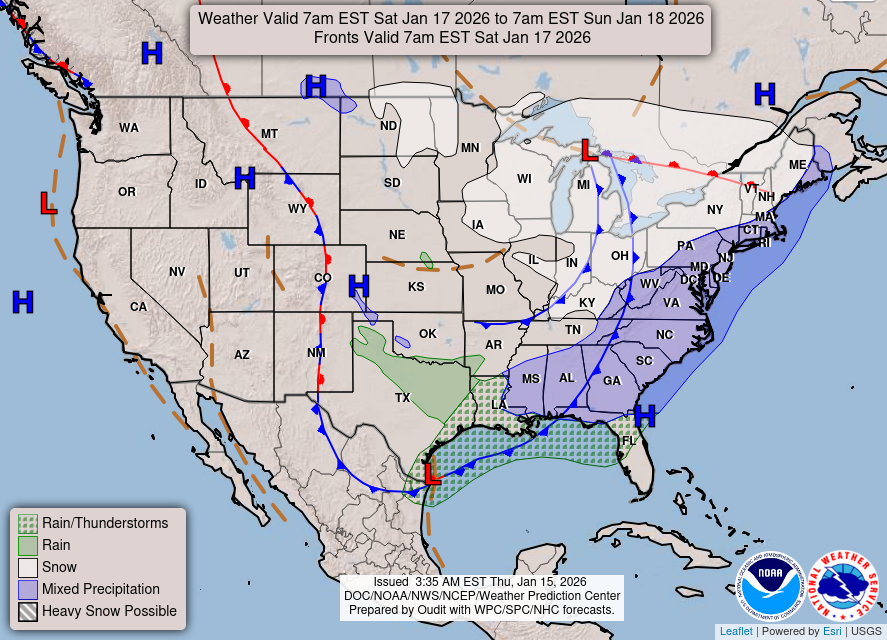
We have a new animation of the forecast which shows how things may play out over the next 60 hours. To update click ANIMATION. Doing so will get you to the dashboard. You can then step through the animation or hit LOOP on the upper right of the display. You will have to hit the back arrow ← at the top left on your computer to get back into this article. It is a little more trouble than before but I think NOAA scrapped the animation routine I was using so we have to keep up with “progress”.
The NWS Climate Prediction Center’s: Watches, Warnings, and Advisories plus other information can be found HERE. That takes you to the NWC Severe Weather Site. From there you can select among many categories of information. Remember to hit the back arrow ← at the top left of your screen to return to this article.
ATMOSPHERIC RIVERS
This tells us what is approaching the West Coast. Click HERE to update If I have not gotten around to doing the update. Here is some useful information about Atmospheric Rivers.

Below is the current five-day cumulative forecast of precipitation (Updates can be found HERE)
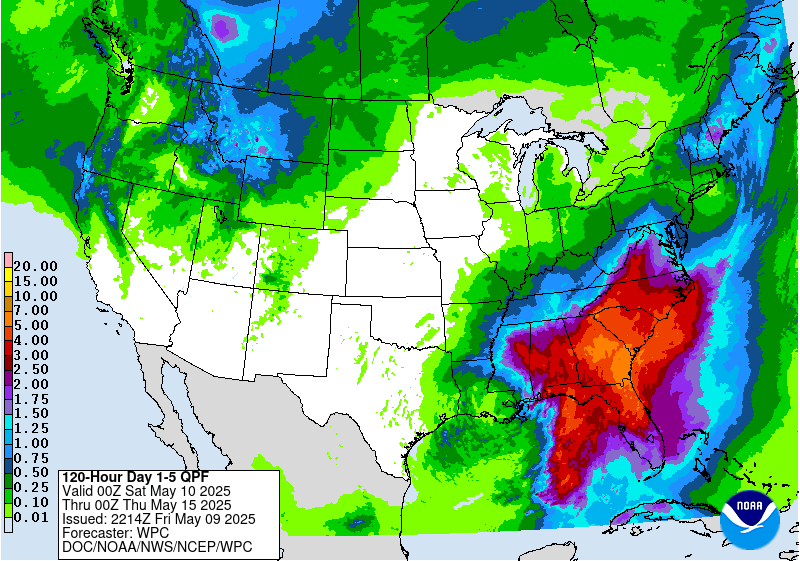
Ski SnowReports
New Feature – Ski Reports. It is difficult to find reports that auto-update on-screen (and they are very long) but these links will get you to them – If you have additional suggestions make them in the comments section after every Econcurrents Article and we may add those links. We will try to not have too much overlap as that can add to the confusion.
Snow Forecasts. And remember this shows natural snow. Ski resorts also make their own snow.
Day 1
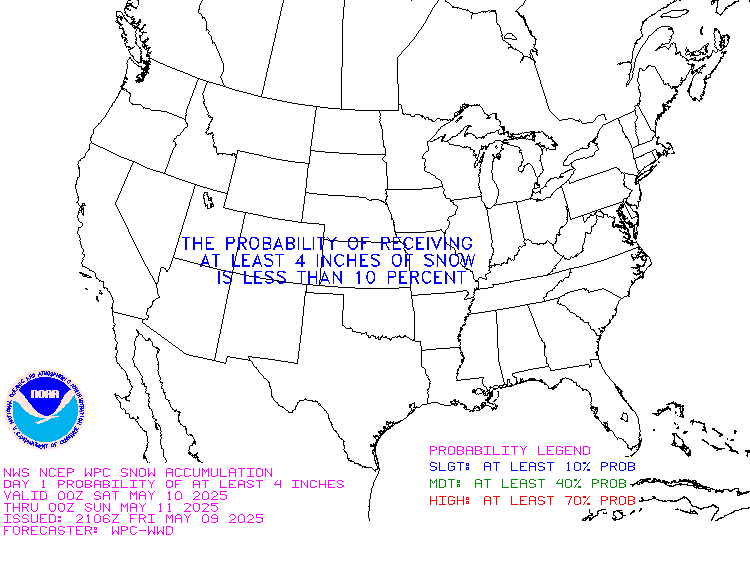
Day 2
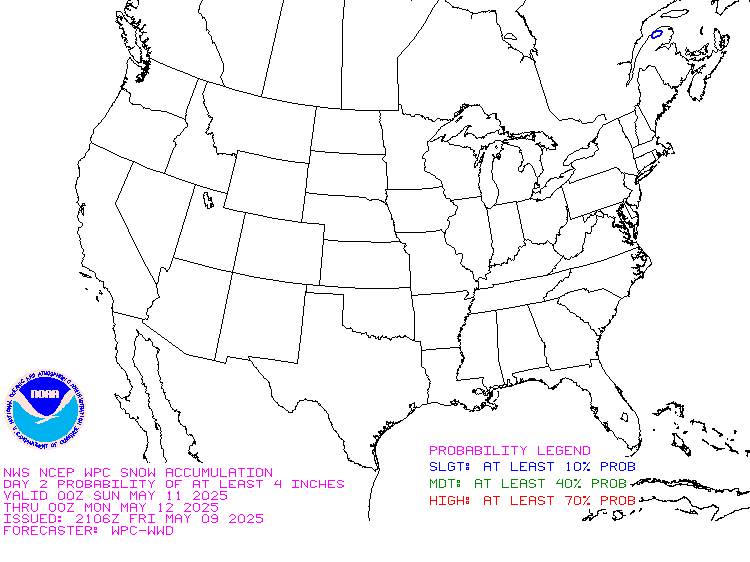
Now we look at Intermediate-Term “Outlook” maps for three time periods. Days 6 – 10, Days 8 – 14, and Weeks 3 and 4. An outlook differs from a forecast based on how NOAA uses these terms in that an “outlook” presents information as deviation from normal and the likelihood of these deviations.
Below are the links to obtain updates and additional information. They are particularly useful if you happen to be reading this article significantly later than when it was published. I always try to provide readers with the source of the information in my articles. These links may also be useful for those viewing this article on a cell phone or other small screen.
| Days 6 – 10 (shown in Row 1) | Days 8 – 14 (Shown in Row 2) | Weeks 3 and 4 (Shown in Row 3 but updates only on Fridays) |
| https://www.cpc.ncep.noaa. gov/products/predictions/610day/ | https://www.cpc.ncep .noaa.gov/products/predictions/814day/ | https://www.cpc.ncep.noaa.gov/products/predictions/WK34/ |
Showing the actual maps. They should now update automatically. The Week 3 – 4 Outlook only updates on Fridays. So below is what I call the Intermediate-term outlook. On Fridays, it extends out 28 Days. That declines day by day so on Thursday it only looks out 22 days until the next day when the Week 3 – 4 Outlook is updated and this extends the outlook by one additional week.
| 6–
10
|
|
|
| 8–
14 |
|
|
| 3–
4 |
|
|
HAZARDS OUTLOOKS
Click here for the latest complete Day 3 -7 Hazards forecast which updates only on weekdays. Once a week probably Monday or Tuesday I will update the images. I provided the link for readers to get daily updates on weekdays. Use your own judgment to decide if you need to update these images. I update almost all the images Friday Night for the weekend edition of this Weather Report. So normally readers do not need to update these images but if the weather is changing quickly you may want to.
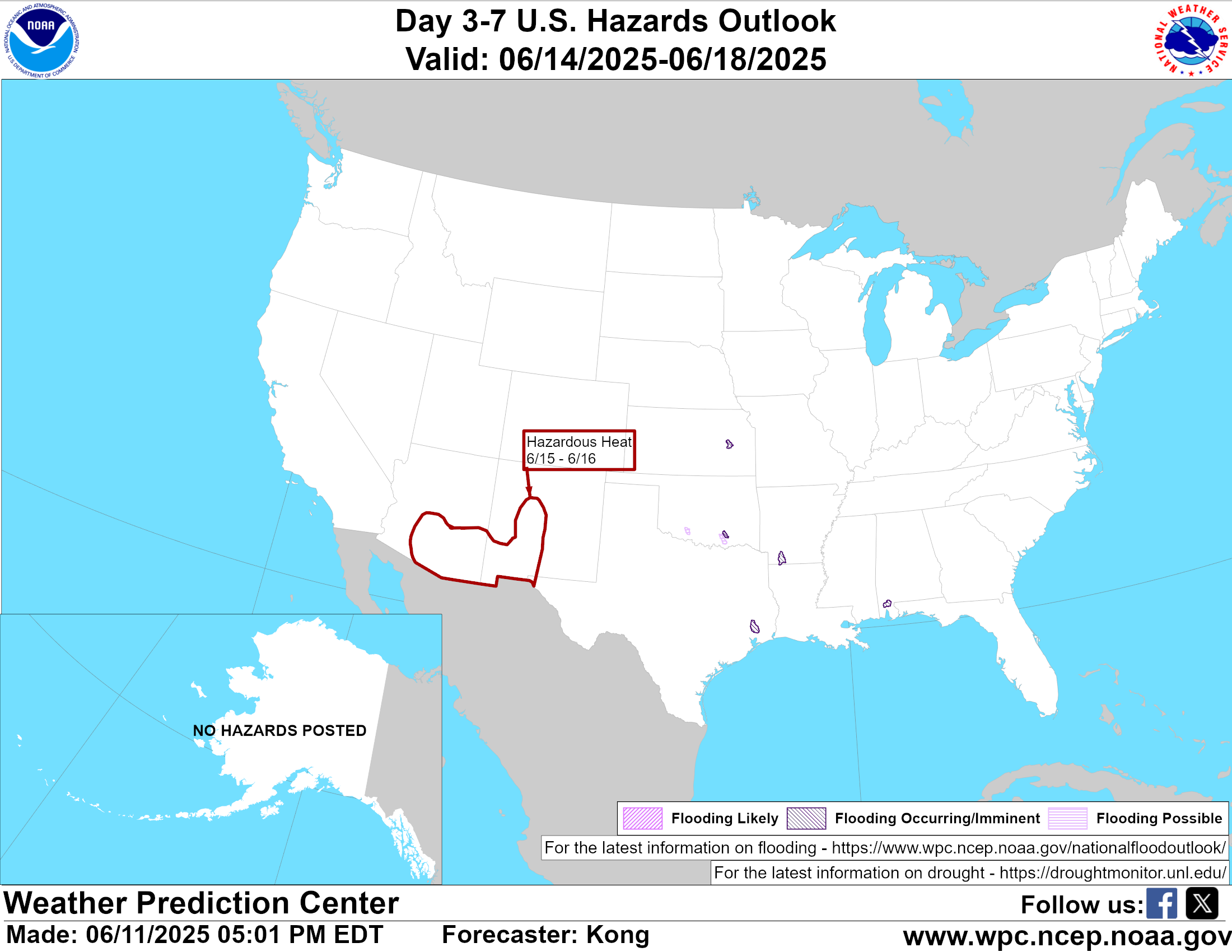
Temperature month to date can be found at https://hprcc.unl.edu/products/maps/acis/MonthTDeptUS.png
Precipitation month to date can be found at https://hprcc.unl.edu/products/maps/acis /MonthPNormUS.png
World Forecast [that website is has been intermittent so be patient]
Below are the Day 1 -3 and 4-6 forecasts for temperature and precipitation. Updates and much additional information can be obtained HERE
World Temperature Anomalies

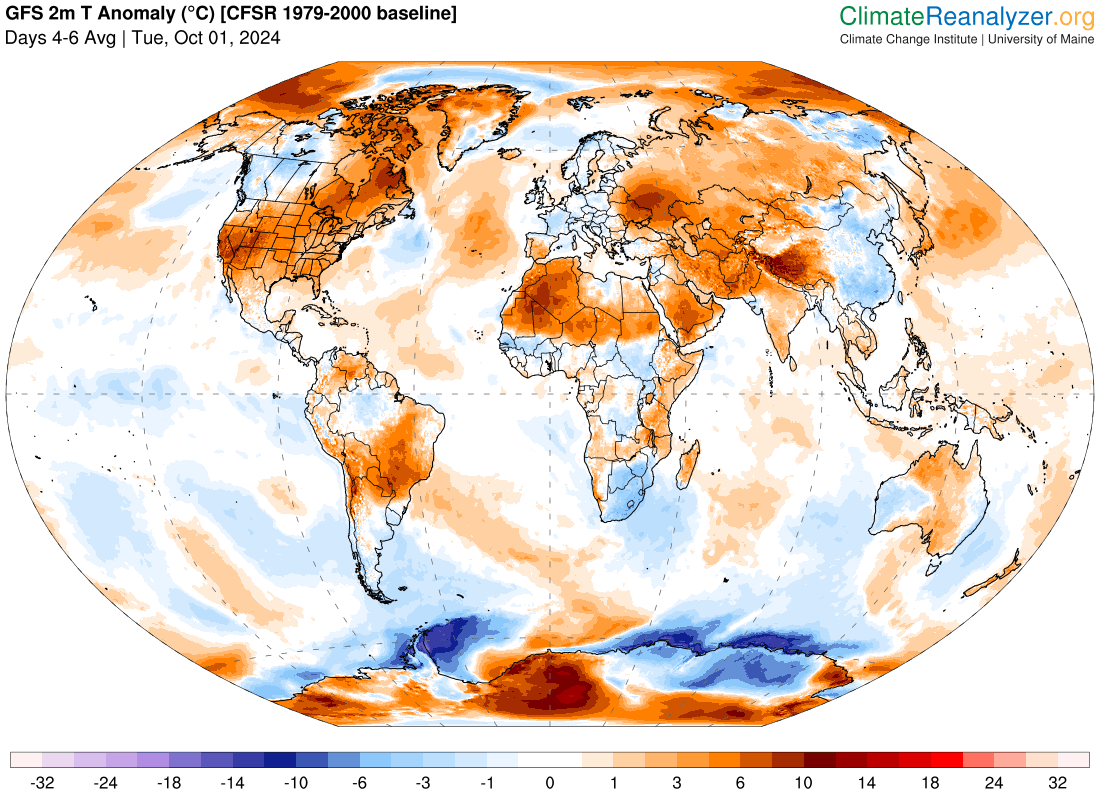
World Accumulated Precipitation
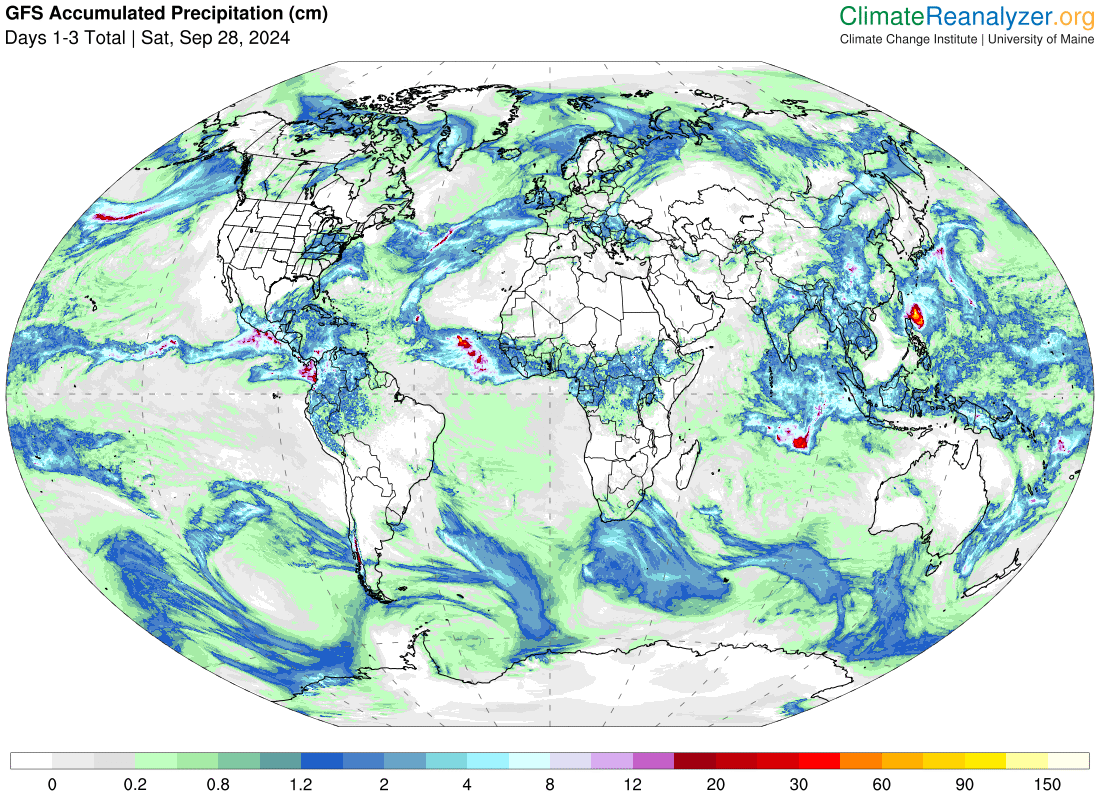
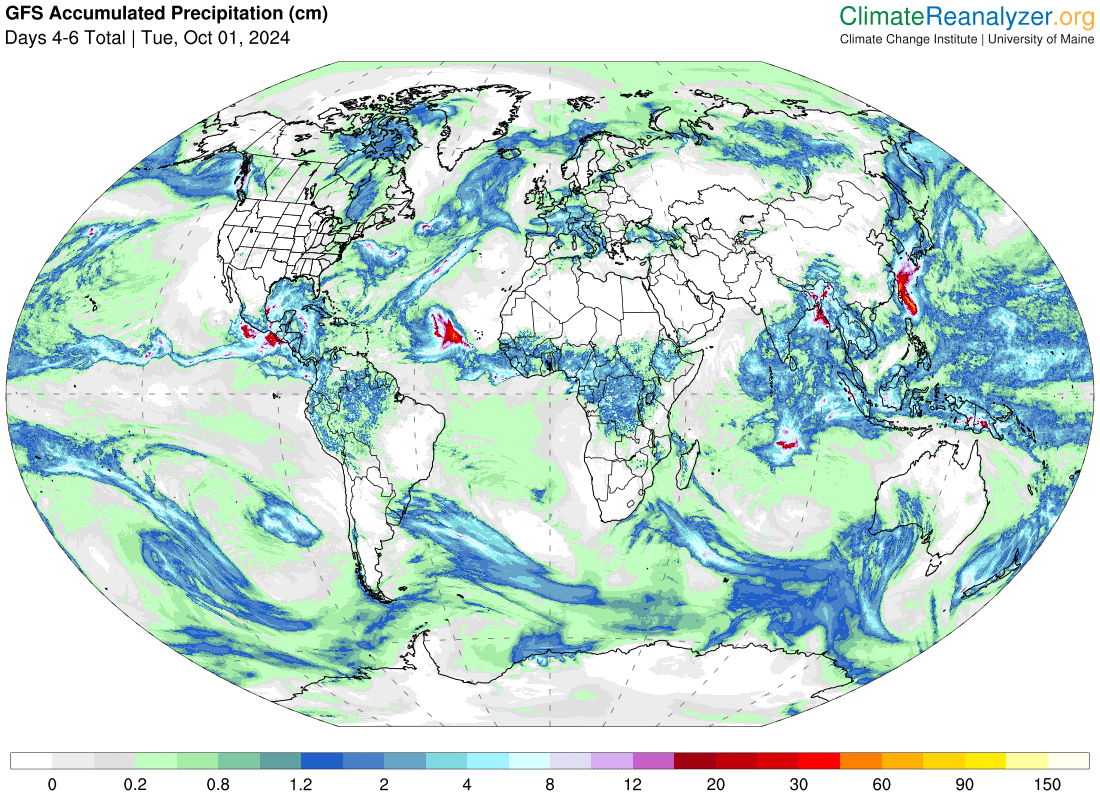
This information is provided by the University of Maine. They draw upon many different sources. There is a lot of information available at the link provided. I have just provided two useful forecasts. There are probably over a hundred different forecasts available from this source.
Worldwide Tropical Forecast (This is a NOAA Product)
This graphic updates on Tuesdays) If it has not been updated, you can get the update by clicking here Readers will only have to do that if they are reading this article much later than the date of it being published.
Information on Tropical Storms can be found HERE. Western Pacific information can be found HERE. Note that unless there is an out-of-season storm the below images will not update until the National Hurricane Center starts their seasonal update of these maps on June 1. I include them simply because there can be an out-of-season event in which case it should show up in these maps.
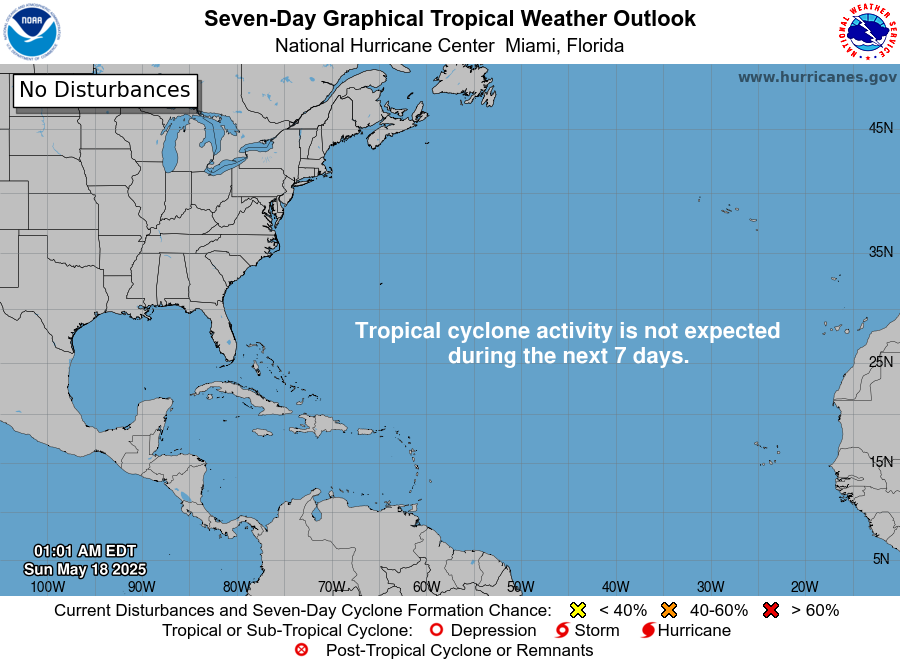
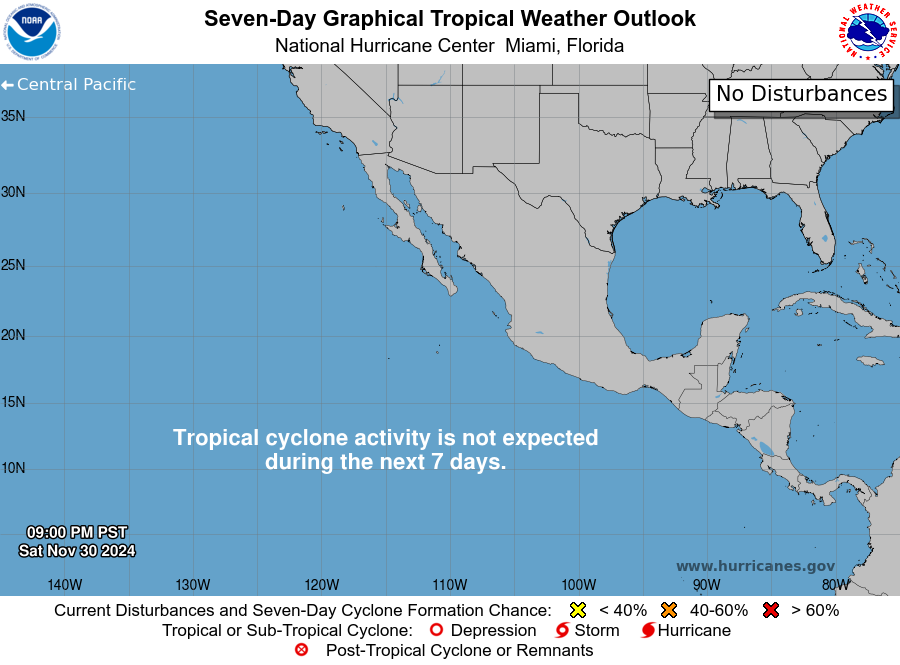
–
| I hope you found this article interesting and useful. |








